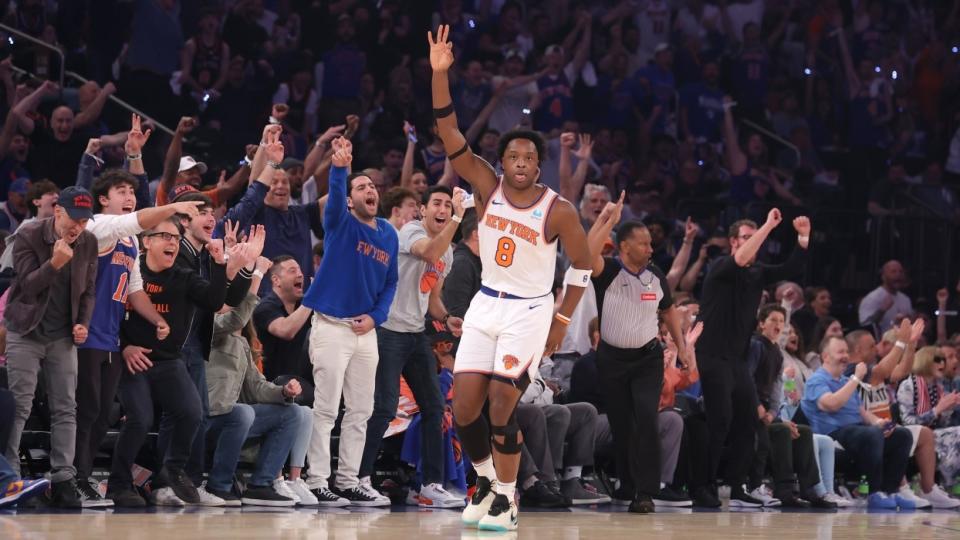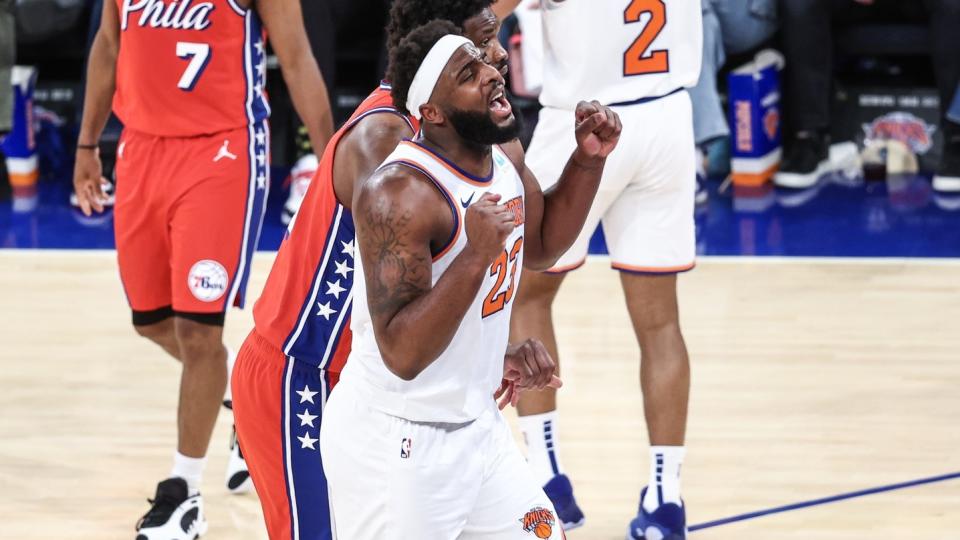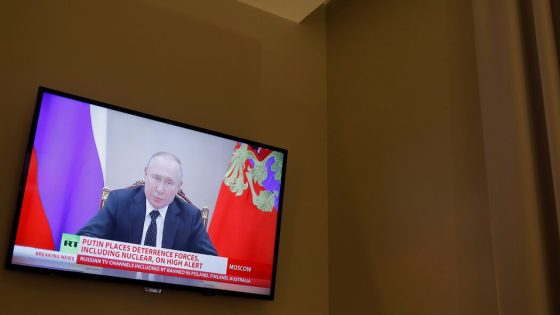Even though the Nets knew Mikal Bridges wanted to be a Knick, they had no reason to move him any time soon.
Bridges is under contract through 2025-26.
So why did Brooklyn trade him – to the Knicks of all places – on Tuesday night?
The Knicks made the Nets an offer they couldn’t refuse, sending a package including five first-round picks and one first-round pick swap across the river to land Bridges.
Bridges is now reunited with old Villanova teammates Jalen Brunson, Donte DiVincenzo, and Josh Hart. The Nets now have an incredible amount of draft capital to start from scratch under first-year head coach Jordi Fernandez.
This could be a rare NBA trade where both sides “win.”
The Knicks clearly believe adding Bridges to this core pushes them toward title contention.
But they still have some significant decisions to make in the aftermath of the deal.
WHAT ABOUT OG?
As noted last night, this trade doesn’t preclude the Knicks from re-signing OG Anunoby. The club felt like it was in a good place on Anunoby entering the offseason and they still will do everything they can to re-sign Anunoby in free agency. Anunoby is expected to command a deal that starts – at minimum – at $35 million.

As currently constituted, the Bridges trade will leave the Knicks hard-capped at the first apron. So they would be unable to spend above the $178 million first apron, as Yossi Gozlan notes.
But the Knicks and Nets can amend the deal to allow New York the opportunity to send more salary out. If the Knicks send more salary out in the trade than they take in, they can avoid being hard-capped at the first apron. This would probably require looping in a third team on the trade.
Doing so would allow New York to exceed that $178 million apron to build out the rest of the roster.
They may not have to factor Isaiah Hartenstein’s contract into their payroll. As SNY reported on Tuesday, Hartenstein is expected to receive significant interest from several suitors in free agency. The Knicks are limited in what they can offer Hartenstein.
They can give him a contract worth as much as $72 million over four years.
Teams with cap space can far exceed that starting salary (roughly $16 million).
Where things stand today, Hartenstein is unlikely to return to New York, per SNY sources.
That leaves a big void at center and is something the Knicks will have to address this offseason. They have three remaining first-round picks to use in potential trades.
The Knicks can also shed salary to avoid the first-apron hard-cap by making a trade. Mitchell Robinson’s name has come up in trade talks. But if they dealt Robinson, the Knicks would need to replace two major players in their rotation in one offseason (Robinson and Hartenstein).


If New York executes the Bridges trade in July, they can include smaller salaried players like Jericho Sims and one of the players on minimum contracts to avoid being hard-capped at the first apron.
MANHATTAN BRIDGE
Both the Knicks and Nets had known for some time that Bridges ultimately wanted to be a Knick. Did he demand a trade in the traditional sense? No. But the Nets knew where Bridges stood ahead of Tuesday’s trade. It was communicated to them as trade talks picked up.
And they were aware that Bridges could essentially control where he was traded by telling teams that he planned to sign with the Knicks as a free agent. Bridges’ side planned to do just that, as SNY reported late Tuesday.
Still, the Nets were under no obligation to move Bridges any time soon. They could have let the situation play out this season and next and see if Bridges’ thinking shifted.
But the Knicks’ offer was probably far and away the best they’d received on Bridges. So Nets top basketball exec Sean Marks put the optics of helping the Knicks aside and made the best trade for his team.
The Knicks obtained the player they had long coveted, a player that wanted to be in New York to reunite with his teammates.
Did the Knicks give up too much draft capital for Bridges? We won’t know the answer to that for a few years. If the trade works out well, the Knicks’ picks in the immediate future will be toward the back of the first round. And the Knicks have added one of the top young wing defenders in the NBA without having to worry about his fit in the locker room.
“You can’t buy chemistry,” is how one executive put it late Tuesday night. Bridges will obviously fit seamlessly into the chemistry/culture that’s already been established in New York.
AVOIDING THE APRON
Bridges’ contract ($48 million over the next two seasons) is a great value as the cap continues to rise. If Brunson decides to sacrifice significant money by signing his extension this offseason, it will give the Knicks plenty of wiggle room to stay under the dreaded second apron of team salary.
Beginning in 2024-25, teams over the second apron lose access to any midlevel exception. They also are prohibited from combining multiple player salaries in a trade.
Second-apron teams also can’t send cash to help get deals over the finish line; they can’t trade their first-round pick seven years into the future.
Obviously, this is a place the Knicks want to avoid. Bridges’ contract should help them accomplish that over the next two seasons. If Brunson signs his extension and forgoes the money he could make in free agency, it would put New York in even better position to avoid that second apron.
Source Agencies


